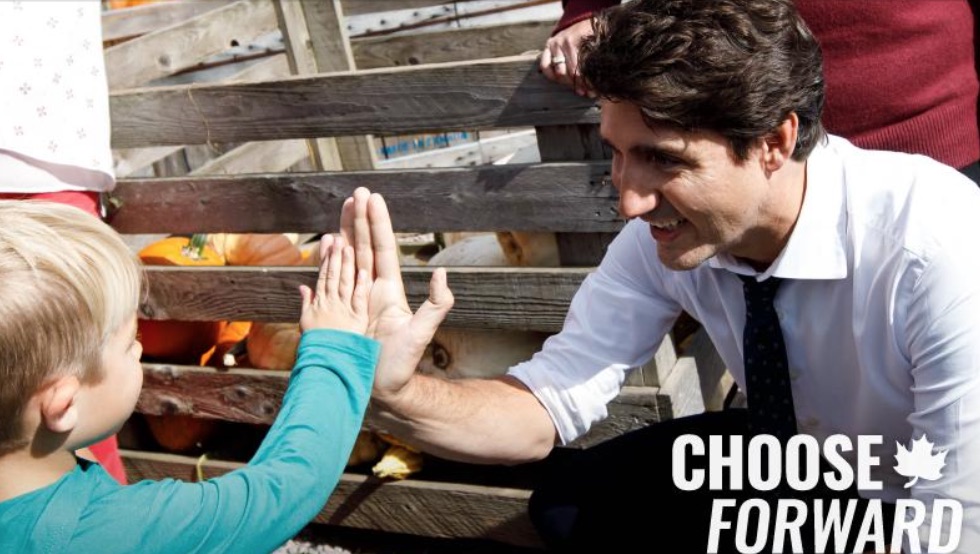In addition to engaging in disinformation operations, Canadian authorities have warned that foreign governments may also try to influence domestic politics by “by attending nomination meetings to help select candidates favorable to their causes.”
Russian Proxies
Russian influence and disinformation operations in Canada became active immediately following the Russian annexation of Crimea in 2014. Since then, Canadian pro-Kremlin groups have pushed narratives that are consistent with those promoted by the Putin regime, including the conspiracy theory that Canada “is populated by descendants of Nazis who now exert outsized political power…” These organizations have also tried to affect Canadian legislation in the past—including Canadian Magnitsky legislation—and to discredit Canada’s leadership of NATO’s Enhanced Forward Presence in Latvia and training missions in Ukraine.
During the 2015 Canadian federal election, the Russian Canadian Congress published a letter that stated that the “horrible human rights violations conducted by Ukrainian government and the radical ultra-nationalist organizations… enjoy full support from the current Conservative government.”
However, these groups have remained relatively silent on social media during the election period. Members of pro-Putin Canadian social media groups have posted support for the far-right populist People’s Party of Canada, led by former Conservative cabinet minister, Maxim Bernier. And known pro-Kremlin trolls and sock puppets have amplified misinformation primarily targeting Justin Trudeau and Liberal candidates.
Among the positions promoted by pro-Kremlin accounts are Bernier’s anti-immigration policies and the perception that the People’s Party is anti-LGBTQ. While all three mainstream parties, the New Democratic Party, Liberals, and Conservatives, have each expressed support for expanding Magnitsky sanctions and for Ukrainian independence and sovereignty over Crimea. The People’s Party has not. Instead, their election platform stated that, it will not allow Canada to “get involved in foreign conflicts unless we have a compelling strategic interest in doing so.”
Chinese Influence
For several years Chinese government influence has been a major concern in electoral districts around Toronto and Vancouver, which have large concentrations of Chinese voters. Those same suburban ridings are the primary battlegrounds in the 2019 election, and the results of those local elections will help shape the overall outcome of the federal election.
The mixture of Chinese government influence, possible ties to campaign financing, and targeted messaging, has created a toxic political environment that has threatened to undermine local and national trust in the Canadian democratic process. Their influence on local political campaigns can be seen in their promotion of candidates from both leading political parties who adopt positions favorable to China.
In 2015, Toronto-area member of the Ontario Provincial Parliament, and Minister of Citizenship, Immigration and International Trade, Michael Chan, was identified in an explosive Globe and Mail article about Chinese regime influence in Canadian politics. The report claimed that CSIS, Canada’s intelligence agency, briefed Ontario officials about Chan, who, according to them, “had developed too close a relationship with China’s consulate in Toronto, raising fears the minister was susceptible to interference from Beijing that could put Canada’s national interests at risk.”
Chinese Communist Party-funded (CCP) junkets are also a key channel for influencing Canadian politicians. Since 2006, the CCP has funded nearly forty junkets for federal ministers of parliament (MPs) and Senators. These trips expose parliamentarians to Chinese propaganda and influence.
Notably, the former federal Liberal cabinet minister, John McCallum—whose seat was in the same federal riding as Chan’s provincial one—took trips funded by China and pro-Beijing business groups, valued at 73,300 dollars, before he became Canada’s ambassador to China from 2017 until 2019. He resigned after publicly wading into the extradition case of Huawei executive Meng Wanzhou. In June of this year, Conservative leader Andrew Scheer accused McCallum of inviting Chinese interference in the October federal election.
Most recently, Conservative MP, Bob Saroya—whose electoral district north of Toronto is next to the one held by McCallum, and has the highest concentration of Chinese voters—was identified by the Globe and Mail for having taken a CCP-funded junket to China in 2018.
The Chinese community in Canada was targeted by political ads on the Chinese social media platform WeChat in violation of Canadian campaign advertising laws. Many of the ads featured false information specifically targeting the community, which is particularly sensitive to illegal immigration, crime, and drug use issues. Saroya’s campaign reportedly utilized false information in his campaign about ‘fake refugees’ being allowed to illegally enter Canada in his campaign literature. Another Conservative-branded ad urged viewers to vote for the party and made the false claim that Justin Trudeau would legalize hard drugs if elected. The message on the ad stated that “Only Andrew Scheer’s Conservatives will stop Trudeau’s hard drug legalization plan and keep our kids safe.” The Conservative Party placed similar ads with the same messaging on Facebook targeting Chinese voters.
It should be noted that all three main political parties signed the Transatlantic Commission for Election Integrity’s pledge to not engage in the use of mis- or disinformation.
Conclusion
While the overall outcome of the 2019 Canadian federal election was not the result of foreign influence, it is likely that it did have an effect on local and federal debates and outcomes, which was amplified by domestic political engagement in the use of misinformation and disinformation. In the future we should expect more attempts to use raw and negative propaganda, including misinformation and disinformation by domestic actors both independently and in concert with malign foreign actors in Canada.
Marcus Kolga, Toronto
Read original article from here: Trolling Trudeau: Fears of Foreign Interference in Canada




